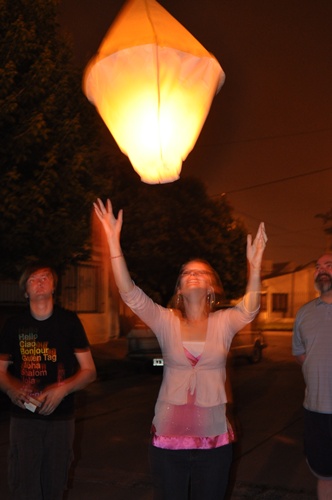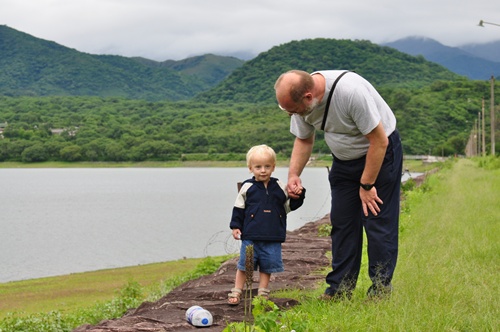In Argentina it only has to look like it might rain at some stage today for everything to be cancelled and no-one to go anywhere. There have merely been clouds in the sky at times when I’ve been the only person show up to a meeting and the organiser has expressed surprise that I turned out “in this weather”. “What weather?” I say, deciding whether it’s worth explaining yet again how much it rains in the UK and yet our economy still manages to creak along.
The clouds became heavy and black towards midday, and the kid who I need to deliver home lives ten kilometres down the Ruta (officially the equivalent of an A road, think just-about B road for quality), followed by two kilometres up a mud track. So I thought if we set off right now we might just be able to get up the track and back out again before it turns into a swamp. I collected Joni from nursery and off we went. The ruta was pretty dire, a lot of surface water but passable, if you’re OK with the lorries from the other direction periodically sending a sheet of water cascading across the windscreen. Luckily everything was going slowly, which is quite unusual here.
Knowing that mud track well, it’s the same one I was stuck in a couple of weeks ago, I deliberately turned in a couple of metres ahead of where I knew I’d get beached again. I didn’t get stuck, we skated across the surface of the not-even-remotely-hard shoulder and came to a halt at a jaunty angle with two wheels hanging over the grassy bank. The judges awarded 8.6 for artistic merit. At that exact moment Martin phoned my mobile to tell me he thought the weather was too bad and that I should delay leaving till it stopped a bit. So I was at least able to agree that the weather was indeed too bad….
I got out and clambered gingerly around the car before concluding that it was stable if rakish and that the kids would be safer in than out. AA and RAC are but distant memories. Critical as I may be towards those who cultivate their helpless female personations, there are times when. So I stood at the edge of the ruta looking wet and needy, next to my piruetted vehicle, and predictably the world stopped to pull us out.
Cue lots of thanks and no harm done. The car’s getting used to its regular layers of mud. Learning outcomes for the driver; 1. I am not called to Rally driving. 2. The hard shoulder is not called the hard shoulder in Argentina because it isn’t. 3. Despite my good British upbringing, there are some things that just don’t work in the rain.



